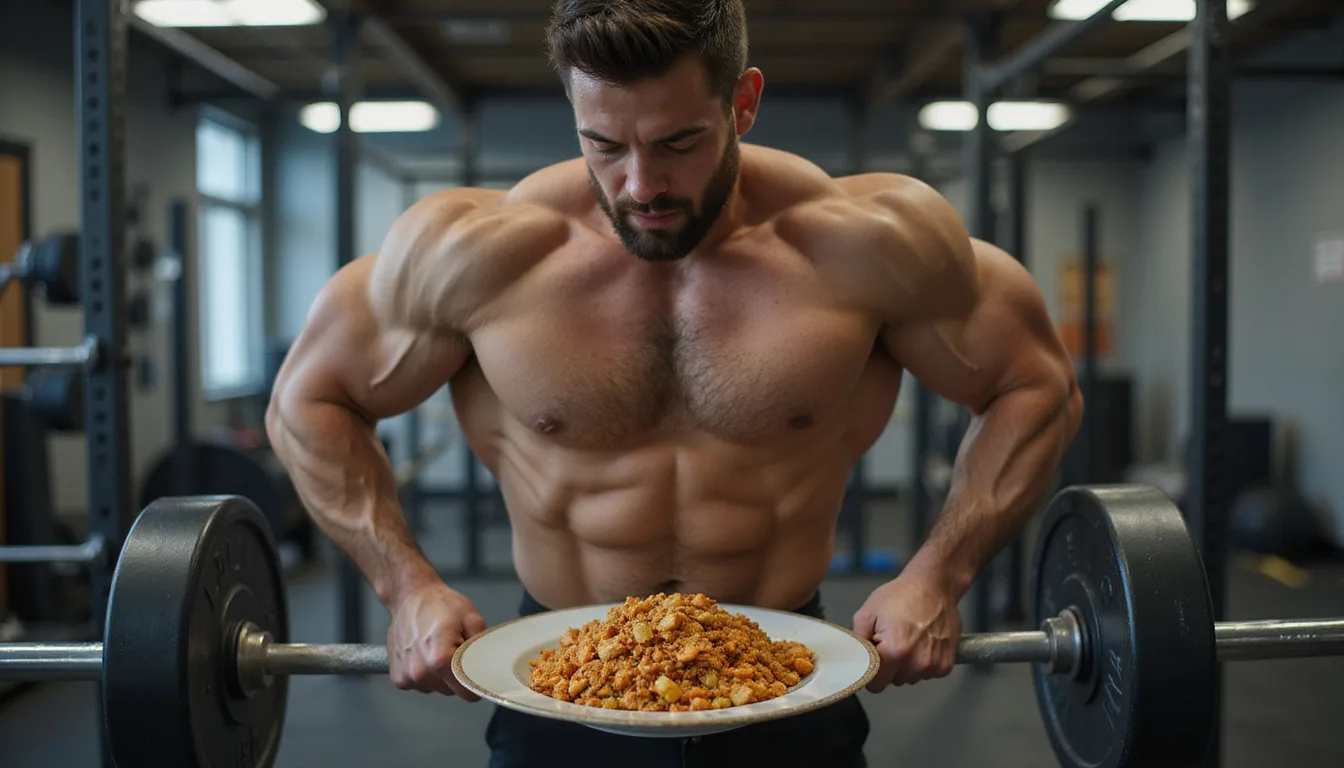
In fitness, muscle building brings up images of hearty, carb-rich meals. People think of pasta or rice. You can build muscle with fewer carbs. This method grows in popularity. It fits those who want lean muscle and choose low carbs for better health or special diets.
This article shows the ideas and steps behind low carb gains. It helps you learn how to grow muscle without extra carbs. We cover food choices, workout changes, and useful tips for a low carb way of building muscle.
Understanding Low Carb Gains
Low carb gains mean you build and keep muscle with fewer carbs. Carbs normally give energy for hard workouts and muscle repair. New studies and diet trends show that, with the right plan, you can still grow muscle on low carbs.
Why Try Low Carb Gains?
Many athletes and gym fans choose low carb muscle building because it may help in several ways:
• Lose fat: Fewer carbs can help burn fat while saving muscle.
• Steady blood sugar: Fewer carbs may help keep blood sugar stable and help with insulin control.
• Steady energy: Some people feel more steady on a low carb diet.
• Choice: Many choose low carb food because they enjoy it or it fits their lifestyle.
Key Parts of Building Muscle on Low Carbs
Adequate Protein Intake
Protein is the base of muscle growth. It gives your body amino acids to fix and grow muscles. When you lower carbs, protein becomes even more important.
• Aim for 1.2 to 2.0 grams of protein per kilogram of body weight each day.
• Use high-quality protein from chicken, fish, beef, eggs, tofu, or tempeh.
Healthy Fats for Energy
When carbs go down, fats rise as an energy source. Healthy fats give fuel to work out and recover.
• Use fats from sources like avocados, nuts, seeds, olive oil, and fatty fish.
• These fats help with hormone balance, which matters for muscle growth.
Right Kind of Carbs
Not all carbs work the same. In low carb gains, you do not cut carbs completely. Instead, you plan when to eat them.
• Pick nutrient-rich, high-fiber carbs like leafy greens, vegetables, and berries.
• Eat carbs around your workout times to get energy and help with recovery.
Training for Low Carb Gains
Good food helps muscle growth, but training does, too. When you eat fewer carbs, your workout might need a small change.
Emphasize Resistance Training
Strength work is the best way to grow muscle.
• Use moves like squats, deadlifts, and bench presses that work many muscles.
• Increase weight or repetitions bit by bit.
Adjust Workout Intensity
With fewer carbs, you may have less energy. Adjust your workout intensity.
• Use moderate to heavy weights and take enough breaks between sets.
• Skip very long or very intense cardio when carbs are low.
Prioritize Recovery
Muscles grow when you rest.
• Aim for 7–9 hours of sleep each night.
• Keep stress low so cortisol does not rise.
• Think about using supplements like BCAAs around workouts to help recovery.
Sample Low Carb Muscle-Building Meal Plan
Here is one day of meals for low carb gains that balance protein and fat while keeping carbs low:
• Breakfast: An omelette made with spinach, mushrooms, and cheddar cheese. Cook in olive oil.
• Snack: A small handful of mixed nuts with a boiled egg.
• Lunch: Grilled chicken breast with an avocado salad (lettuce, cucumber with olive oil dressing).
• Pre-workout: A few berries with a protein shake.
• Post-workout: A whey protein shake mixed with water and a small sweet potato (use this time to eat carbs).
• Dinner: Baked salmon with asparagus cooked in butter.
• Evening snack: Greek yogurt mixed with flaxseeds.

Benefits and Challenges of Low Carb Gains
Benefits
• Fat loss while saving lean muscle.
• Stable energy without high spikes in insulin.
• Better focus and less swelling in the body.
• Help with weight control and metabolic health.
Challenges
• You may feel sick when you first lower carbs (often called low carb flu).
• It takes more planning to get enough energy.
• Recovery might slow down if carbs are very low.
• Eating out or dining with friends may be more difficult.
These points can help you plan and stay steady with your new routine.
FAQ About Low Carb Gains
-
Can you build muscle on a very low carb diet?
Yes. You can build muscle on very low carb diets like keto if you watch protein, fat, and how hard you work out. Adding a few carbs around your workout may help. -
How many carbs should I eat daily for muscle building?
It depends on you. Many follow low carb muscle building plans with 20-100 grams of carbs each day. Plan these carbs around your workouts. -
Do I need supplements for low carb muscle gains?
Supplements like whey protein, BCAAs, and creatine can help muscle growth. However, eating whole foods is better for most nutrients.
Expert Insight: Protein and Carbs in Muscle Growth
Studies by the American College of Sports Medicine show that enough protein combined with a balanced carb plan is key for building muscle and fixing muscles after work. This idea shows that you need to plan carb intake to fit your body instead of cutting them out completely.
Final Thoughts & Call to Action
Low carb gains let you build muscle without many extra carbs. By using the right protein, healthy fats, planned carb timing, and adapted workouts, you can gain lean muscle and improve your body.
Ready to change your muscle-building plan? Begin by changing your meal plan and workout to fit low carb gains. For advice that fits your needs, talk with a nutritionist or fitness expert. Start using low carb gains and work toward a strong, lean body.
[center]Always consult with your doctor prior to making drastic diet changes.[/center]
[center]As an Amazon Affiliate, Savvy Keto makes a small commision (at no extra cost to you) on any purchases you make thru affiliated links you click on.[/center]




